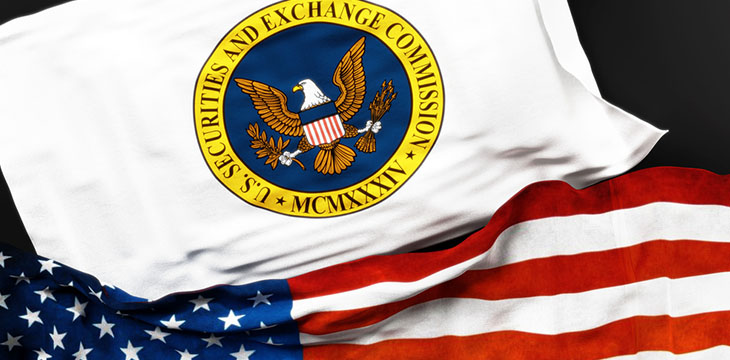|
Getting your Trinity Audio player ready...
|
Last week, the U.S. Securities and Exchange Commission (SEC) charged several well-known celebrities, including actress Lindsay Lohan and social media personality Jake Paul, with participating in paid promotional schemes for digital assets without disclosing their compensation.
On March 22, the SEC announced charges against eight celebrities as part of broader charges filed against crypto entrepreneur Justin Sun and three of his companies, Tron Foundation Ltd, BitTorrent Foundation Ltd, and Rainberry Inc (formerly BitTorrent), for the unregistered offer and sale of the digital assets Tronix (TRX) and BitTorrent (BTT).
The SEC’s complaint, filed in U.S. District Court for the Southern District of New York, alleges that Sun and his companies offered and sold TRX and BTT as investments through multiple unregistered “bounty programs,” which offered financial and investment incentives to the celebrity participants who agreed to promote the tokens.
Bounty programs are often associated with initial coin offerings (ICOs) and are offered to a range of investors, promoters and developers, sometimes taking the form of cash rewards or free and discounted tokens. Where this comes into conflict with the SEC is that the celebrities in question failed to disclose that they were part of a bounty program, and were being compensated to promote the assets—which violates the regulator’s rules with regards to the disclosure of paid advertisements.
“Sun further induced investors to purchase TRX and BTT by orchestrating a promotional campaign in which he and his celebrity promoters hid the fact that the celebrities were paid for their tweets,” said SEC Chair Gary Gensler, when the charges were announced. “This case demonstrates again the high-risk investors face when crypto asset securities are offered and sold without proper disclosure.”
Bounty programs cover a range of activities in a project or products lifecycle, including promotions, not all of which are as contentious as those employed, or mis-employed, by Justin Sun and his companies.
Bug fixing to endorsing
Bounty Programs take many forms. In the pre-ICO or development stage of a project a bounty program could involve programmers, social media influencers, blog writers, marketers, celebrities, and other interested parties being given incentives to create awareness about the project.
This is not inherently illegal, if done openly and transparently. Where it comes into conflict with law and regulation is when a party’s participation in the bounty program is not disclosed, which in the U.S. would make it fall foul of the SEC’s anti-touting rules, prohibiting the promotion of securities (section 17b of the Securities Act of 1933) without making clear it’s a paid ‘advertisement.’
Of course, not all bounty programs are promotions or endorsements, and thus might not need to be disclosed. A ‘bug bounty program,’ for example, is where incentives and compensation are provided to those who discover faults in a product/project, which can then be fixed by the developers. This often happens post-ICO or post-release of a project and in fact is where the term ‘bounty program’ derives.
Originally coined in the video game development world, bounty programs were rewards or perks offered to gamers who helped with development by finding flaws and bugs in a game. Being rewarded for pointing out flaws in a product, for the purpose of helping finetune that product, would not be considered endorsement or promotion, and thus would not need to be disclosed.
Likewise, if a person involved in a bounty program to create or increase awareness of a product or project made it clear they were being compensated to do so, they would also not fall foul of the law.
Celebrity cases
Lohan, Paul and their celebrity cohort of undisclosed TRX and BTT advertisers are just the latest example of high-profile figures to, knowingly or unknowingly, break anti-touting rules.
Last October, television personality and influencer Kim Kardashian was fined $1.26 million for failing to disclose the fact that she was being paid to endorse EthereumMax on Instagram, and in 2018 the SEC fined boxer Floyd Mayweather Jr and rapper DJ Khaled a combined $600,000 for failing to disclose they were paid to endorse the Centra Tech digital currency project.
The celebrities named by the SEC in last week’s charges agreed to pay a total of over $400,000 to settle, without admitting guilt; Lohan paid $10,000 to the SEC and another $30,000 in penalties, while Paul was ordered to pay more than $100,000.
It’s not known how much the various named celebrities made for their participation in Justin Sun’s promotional bounty programs, but the fines will likely serve as a warning to those considering similar propositions in future, especially with the Director of the SEC’s Division of Enforcement, Gurbir S. Grewal, describing the scheme as, “the very conduct that the federal securities laws were designed to protect against.”
Watch: Law & Order Regulatory Compliance for Blockchain & Digital Assets
Recommended for you
British lawmakers of the parliamentary national security committee have called for a temporary ban on political parties receiving donations in
Circle (NASDAQ: CRCL) soared in 2025 thanks to U.S. ‘regulatory clarity,’ but can this momentum survive a ban on crypto

 02-26-2026
02-26-2026 




